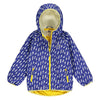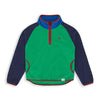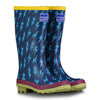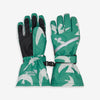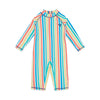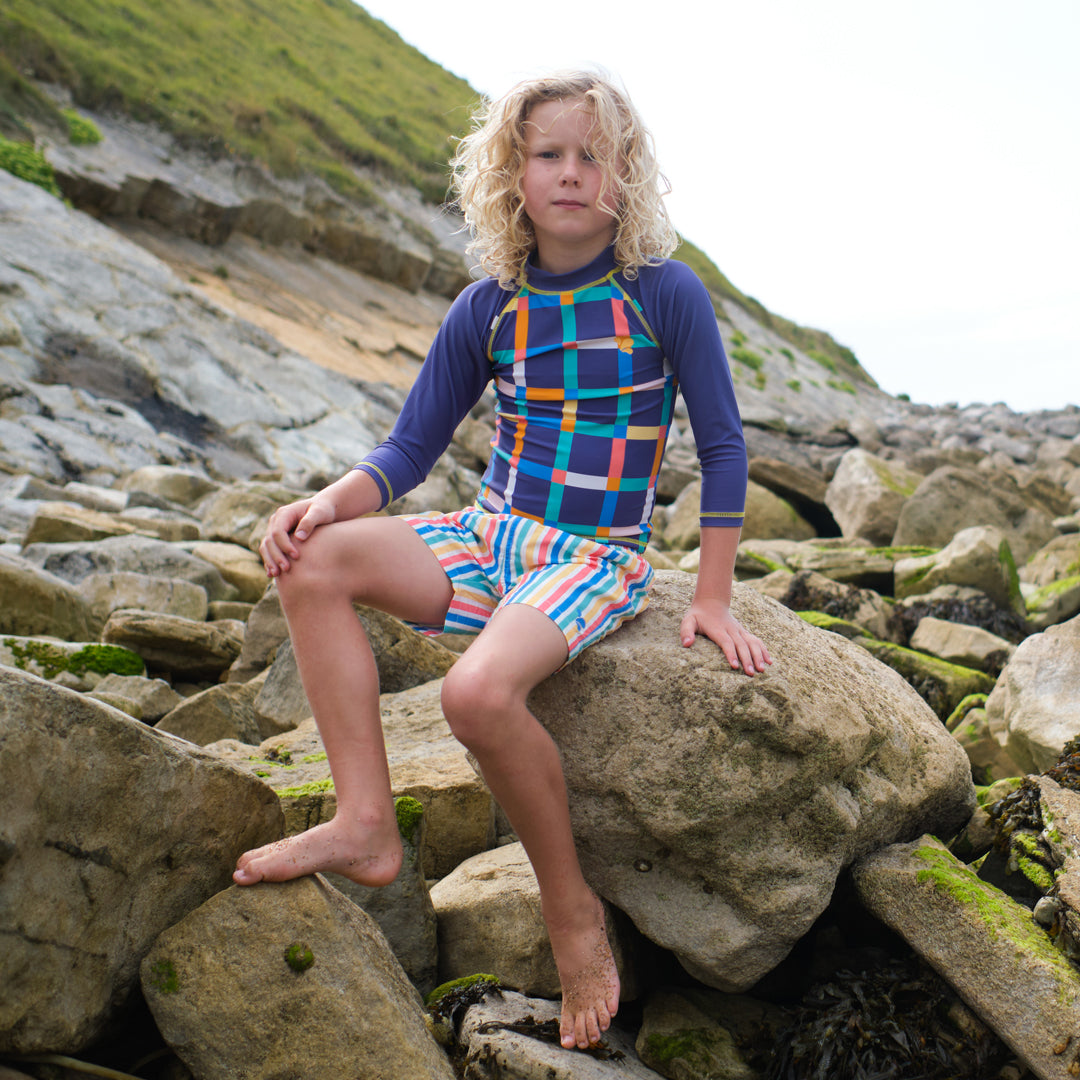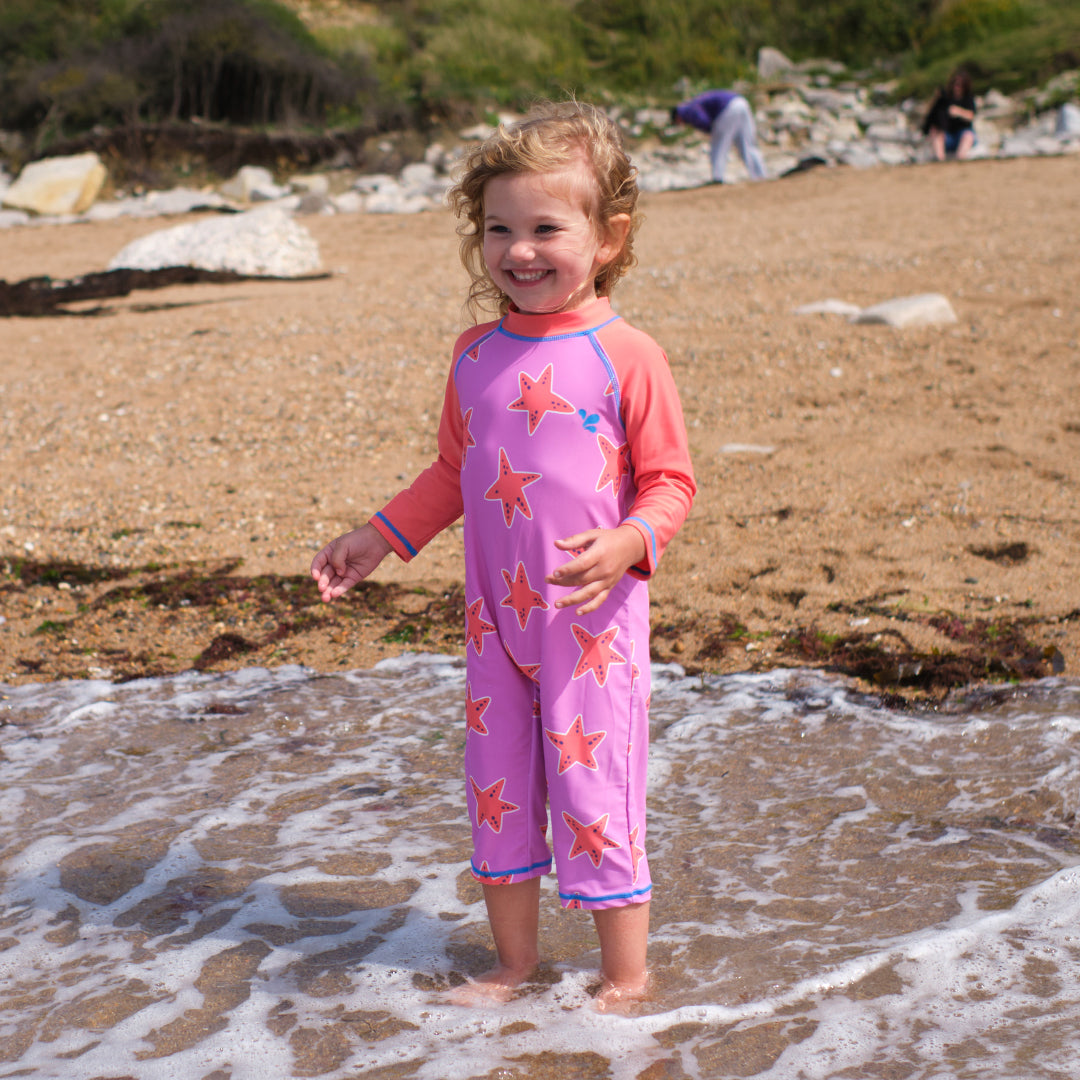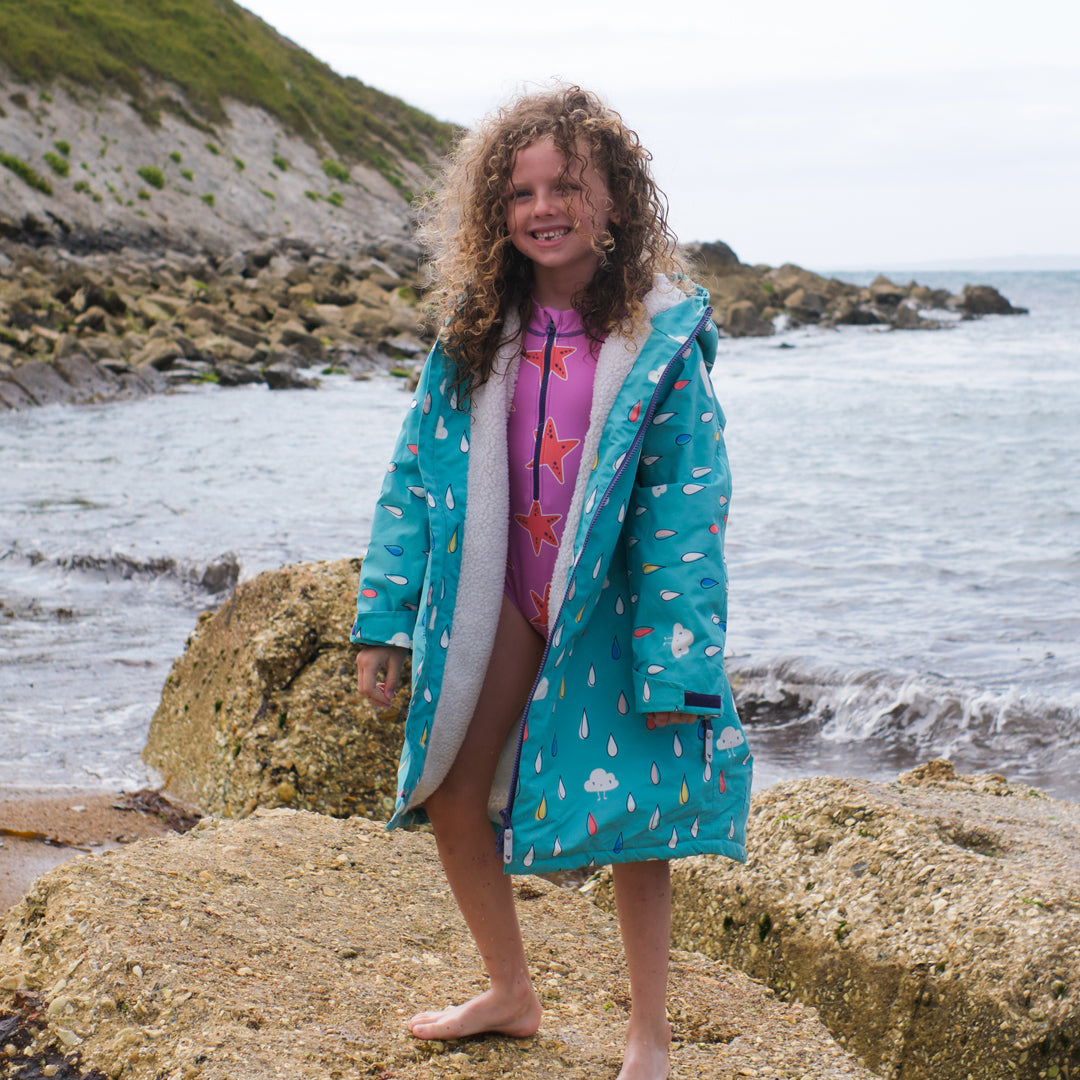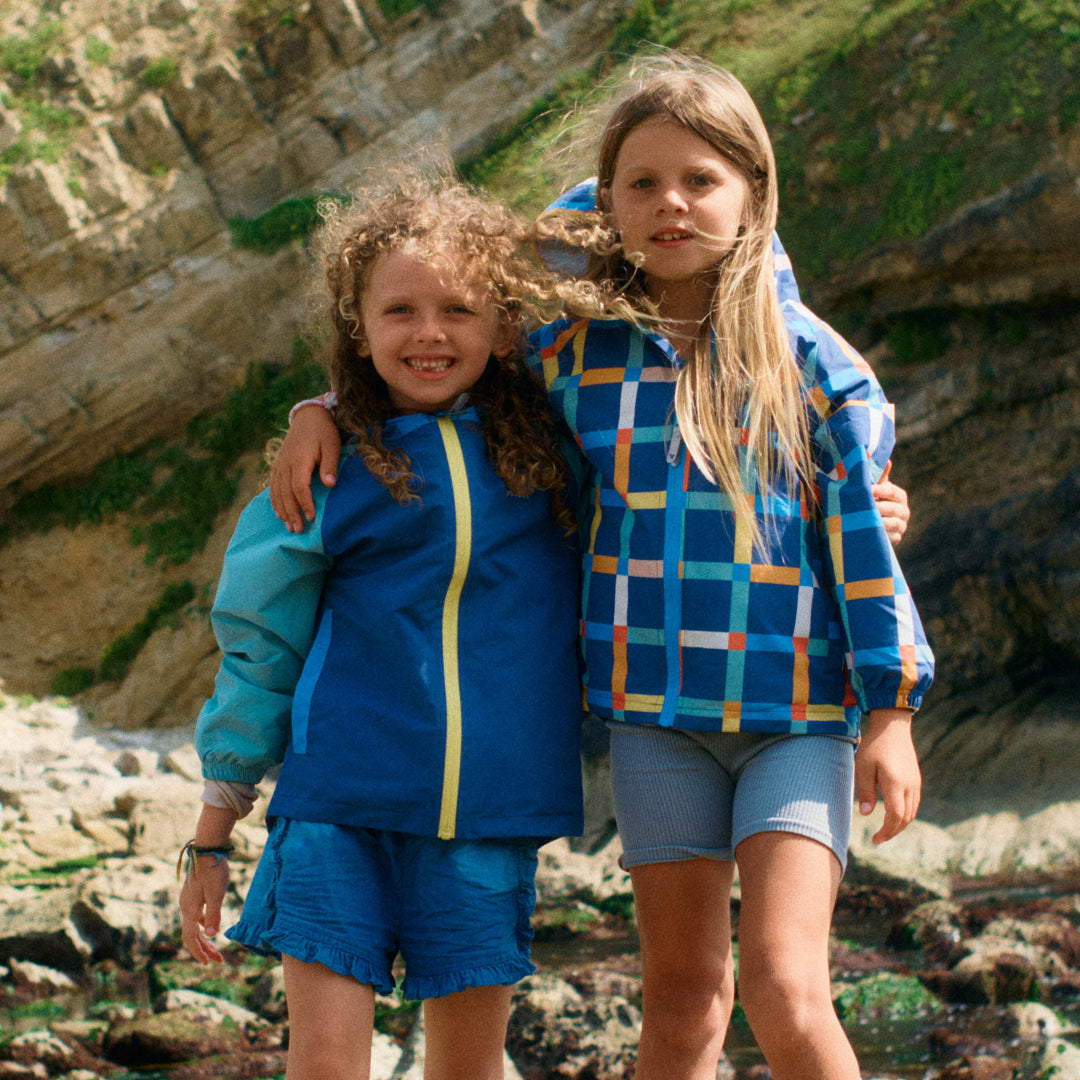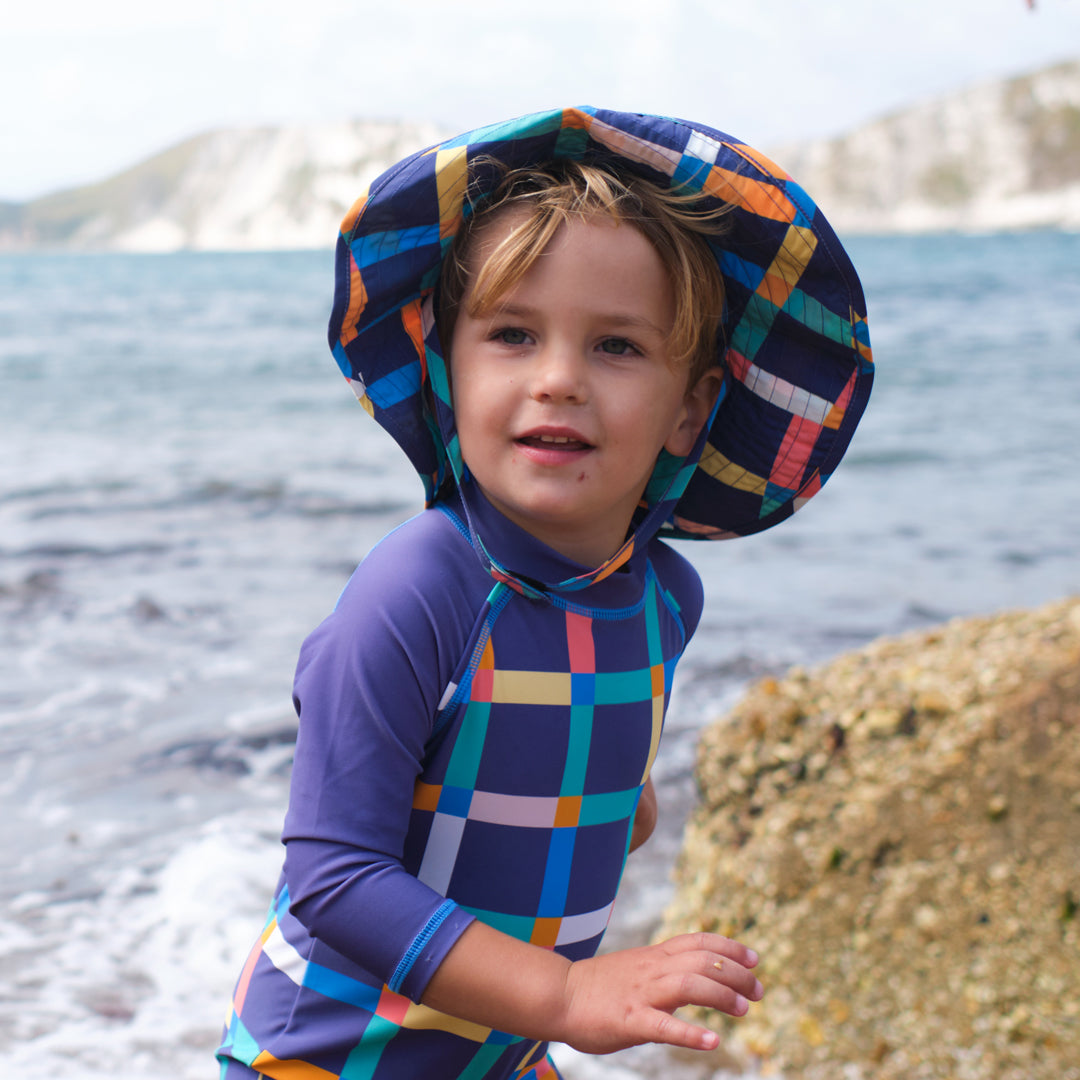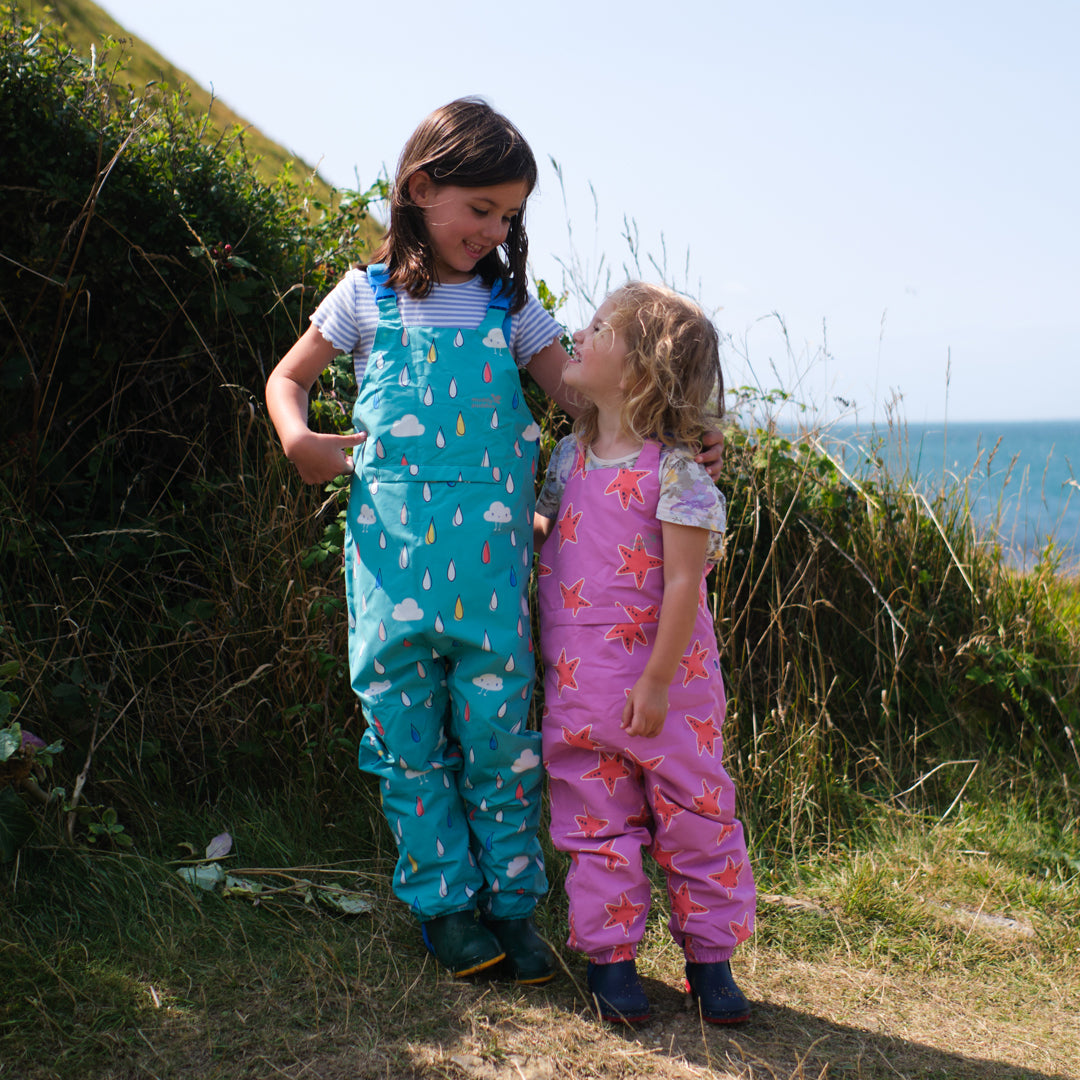
10 Ways To Reduce Your Plastic Use
This month we’re celebrating the Return of Plastic Free July, the Global Movement empowering us all to be a part of the solution to plastic pollution. By making small changes, and refusing to use single-use plastics, we can make a huge difference and reduce the amount of plastic entering our Oceans, Rivers, and Streets.
During Plastic Free July, people around the World are setting themselves personal challenges to reduce household plastic waste, getting their workplaces and schools involved, hosting plastic-free events within their communities (such as beach/park clean ups, and plastic-free picnics) and asking their MP’s to review local policies. For information about how you can get involved with Plastic Free July, please visit their website here.

At Muddy Puddles we’re all about making clothes to protect children on their outdoor adventures, while making sure we’re kind to our planet. Sustainability is one of the most important values in our business and in everything we do. We’re proud to join in with Plastic Free July, and we’re bringing you our top 10 ways to reduce your household plastic waste.
In the UK, 38.5 million plastic bottles are used every day – only half of these are recycled, and the rest are put into landfill, or they end up in the environment and oceans. It takes these bottles over 450 years to decompose and when they do the resulting microplastics can be mistaken for food by small animals, killing millions of creatures each year. The solution to this is easy – when you go out, make sure you take a re-usable water bottle and fill this up at a water refill station. Similarly, instead of using disposable coffee cups which are lined with plastic, make sure that you take a re-usable coffee mug, and ask your barista to fill this up instead. Many coffee chains will also offer you a discount for doing this.
When you visit a Supermarket it can be incredibly alarming how much plastic packaging can be found on every aisle. An easy way to reduce your plastic waste is to buy certain items in bulk once a month rather than weekly. You may also find that a plastic-free refill shop has opened in a town near you – there are over 100 around the UK and this number is growing fast! Refill shops are the perfect place to stock up on cereal, nuts, grains, pulses, pasta, rice, herbs and spices – just remember to take containers with you (although most of these shops also provide paper bags).

Cling film is an essential item in most homes, and helps to reduce food waste. However, once used it cannot be recycled and ends up in landfill. There are so many fantastic alternatives to cling film available – beeswax food wraps are perfect for storing sandwiches, bread, fruit, vegetables and cheese. It’s also really simple to make your own, if you use a how-to guide (such as this one from Good Housekeeping). Similarly, if you get through a lot of sandwich bags or freezer bags, reusable bags which are freezer and dishwasher safe are a great option – we love these ones from Russbe, available through Lakeland and Amazon.
It’s really surprising how many teabag brands use plastic to keep the teabags from falling apart – an unnecessary practice as there are plenty of brands who produce plastic-free teabags, such as Clipper, PG Tips, Teapigs, and Twinings. Going for loose leaf tea is the obvious winner – not only is it best for the planet, but it makes use of the larger tea leaves that haven’t been broken, and therefore gives a fresher, stronger and purer taste. All you need to get started is a teapot, a loose tea scoop and a tea strainer.
Home milk delivery from local dairies was the go-to for most families in the 1950s and '60s, however as it became easier and cheaper to buy milk at the Supermarket, the milkman began to fade into the past. Due to the environmental impact of plastic milk bottles and cartons, the milkman is fast becoming a popular choice once again, as glass milk bottles can be easily reused and recycled. Milk & More offer a fantastic milk delivery service across the UK, and also deliver cheese, butter, bacon, eggs, fruit & veg, juice, bread and pastries, all before 7am.

When it comes to children’s parties it can be hard to avoid plastic – from balloons, to banners, tablecloths, plastic tableware, disposable cutlery and party bag fillers, the impact on the environment can be huge. However, with a little bit of creativity it is possible to plan a party that’s free from harmful single-use plastics. Eco-friendly balloons are widely available and are made from natural rubber which is completely biodegradable. Other popular plastic-free decorations include bunting, tassels, tissue pom poms and fresh flowers. You can even get the birthday child involved and make paper chains, paper streamers, and party hats.
Bar soaps are having a huge resurgence, with luxury soaps available for use at the sink (for hand washing) as well as in the shower/bath. We love the Eco Warrior range of soaps from the Little Soap Company, with their award winning shampoo bars for various hair types, all over body bar, shaving bar, facial bar, exfoliating bar and cleansing bar. The good news is bar soap lasts longer too – just make sure you invest in a good soap dish so that it doesn’t get waterlogged by the side of the bath.
Buying plastic-wrapped or packaged fruits and vegetables can be convenient, but unfortunately it creates plastic waste. Instead, look out for loose fruit and vegetables in your local Supermarket or head to a Farmers Market or Deli where plastic packaging is less often used. A re-useable produce bag is a must-have and most Supermarkets have these available in the fruit & veg aisle. Make sure you take your own shopping bags too and avoid taking single use plastic home with you.

Bin bags are a huge cause of plastic pollution around the world, taking hundreds of years to break down, resulting in microplastics which are increasingly contaminating our oceans and entering our food supply – simply put, plastic bin bags are a huge issue in the fight against plastic waste. Compostable bin liners are the perfect solution and are approved by the majority of councils for kerbside collections. Compostable food caddy bags are widely available from most Supermarkets, however the larger bin bags can be a bit trickier to track down. All Green have a fantastic range for bins of all sizes.
On average, babies go through around 2,500 nappies in their first year alone. That means that 3 billion disposable nappies go to landfill each year, accounting for 2-3% of all household waste. Disposable nappies are typically made from several layers of plastic, including a polyethylene waterproof back layer, and a polypropylene inner layer. In recent years, some fantastic biodegradable nappy brands have emerged, such as Emma Bunton’s Kit & Kin, and Eco by Naty. However the most environmentally friendly option for nappies will always be reusable ones, and they’re also more likely to be avoid spills, be softer on baby’s skin and make potty training easier. We love Bambino Mio’s award winning cloth nappies, which come in a huge range of cute designs – you simply dispose of the biodegradable nappy liner (in the same way you would a disposable nappy), and wash the cloth nappy in within one of their laundry bags.
We hope we’ve inspired you to give Plastic Free July a go. Keep an eye on our Blog as we’ll be sharing more plastic-free ideas throughout July.


